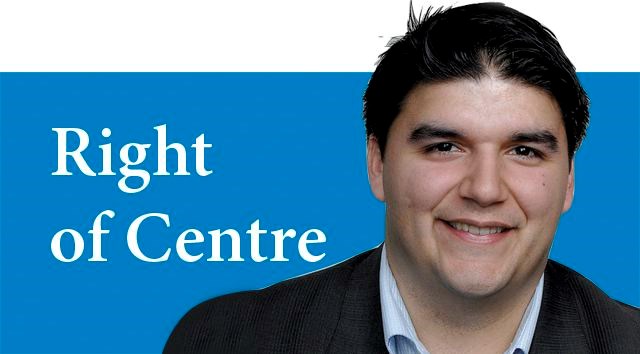I've grown tired of complaining. Perhaps the biggest reason for that is I have reached the singularity of cynicism - I am all but certain my words will not be heeded by those in power and that even if they were, the systems we are tied to at many levels of government are too woebegone to be properly reformed. Thus I am left with only one choice - to step away from the punditry and recall the fundamentals of political philosophy which our world has forgotten to heed.
Likely there is some nostalgia at work here. It is eight years exactly since I attended my first political science class at Trinity Western University with our own Prince George-born Prof. Calvin Townsend. And in great contrast to what many of my alma mater's critics probably think happens there, our 101 course was really a condensed great books course that ranged from Plato to Augustine to Machiavelli to Nietzsche. Thus our minds were ready for the other courses to come our way.
We needed the context and content of the greatest Western minds in order to understand where our political, spiritual, and philosophical thought had come from, what had worked, and where we might be going. In short, Aristotle said that "man is a political animal" and so to study his political beliefs was really to study his fundamental make up and what that means for us in the present day. This is something studying only governmental systems cannot properly teach.
I do hope that rediscovering and explaining these thinkers can become a kind of long, often interrupted series for my space here. In the troubling times we live in, it is right and just to return to the fundamentals, for as map and compass can guide you when the GPS is dropped in the lake, so too can the wisdom of the ages guide us back to a proper understanding of justice and governance as our "highly advanced society" falls to pieces over the most banal issues.
There is no space left here to delve too deeply into any one of these thinkers today, but a political statement that has been on my mind over the last few weeks is a rant from the Prophet and Judge Samuel, found in the Old Testament, in the first book of his name, chapter 8, verses 10-18. In this chapter, the people of Israel ask for a king so they can be like "other nations," and say that they are tired of the tribal rulership of clans and judges.
In short it lacks the security they want.
Samuel, who might take the award as grumpiest prophet in the OT, spits venom, promising them that a king will take their sons for expanding his territory through war, take their daughters to make goods for his own household, and tax them into slavery. "You will cry out because of the king you chose, but the Lord will not answer you in that day." When I am asked what I base my profound cynicism for government on, I often cite this passage.
You can read the entire chapter for yourself by punching the above reference into Google and draw your own conclusions, but here's my take: power easily becomes an end in itself. This truth is so old, it can be found in a speech that predates empires that still affect us today. Long before "let them eat cake" and "I am the state," a grumpy old man told anyone who would hear him that the first and last most powerful, violent, and selfish force was the organized state.
This idea begs many of its own questions. And when properly taught, all political philosophy begs questions, as no political concept is a truly closed system. Humans are concupiscent and unpredictable - they are incapable of being fully contained in a single framework, ideology be damned.
But I can't help feeling that if a majority of people were taught about Samuel's more than 2500 year old indictment of central authority that we might all be better off.
That is ultimately the purpose behind the columns that follow in this vein over the next few months; it's time to remind ourselves of the basic truths -hopefully before it is too late.



